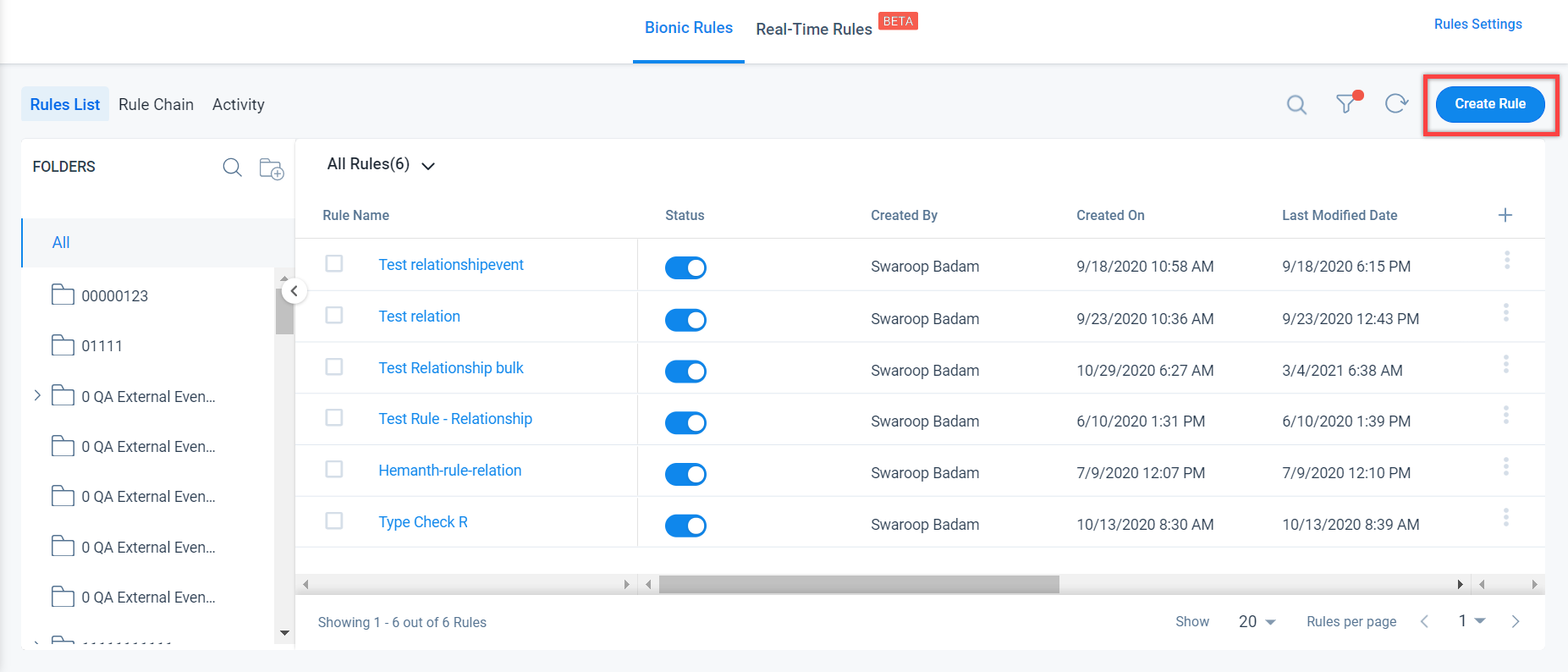Rules Engine Overview
This article explains how the Rules Engine enables you to improve source customer data with transformations and calculations that reveal meaningful insights.
Overview
Rules Engine enables you to improve source customer data with transformations and calculations that reveal meaningful insights. You can optimize team-efficiency by automating workflows alongside the best practice playbooks that trigger precise actions. You can also drive better outcomes for your customers using tactical methods for identifying risks, opportunities, and recommended next steps.
Rules Engine is where Admins can build business rules to trigger CTAs, update scorecard measures, and load data into Gainsight objects. Rules analyze data from Gainsight objects.
Prerequisite Knowledge
Before you begin building rules in Gainsight, it is helpful to know the following, or to work with your Gainsight Admin to understand:
-
Matrix Data Architecture (MDA). For more information about MDA, refer to the Gainsight Data Management article.
-
Prerequisite knowledge to start using Rules Engine and the limitations. For more information, refer to the Rules Engine - Prerequisite Knowledge and Limitations article.
-
Usage data loading frequency, granularity and data week?
-
Weekly or monthly: Determines whether to sum/avg or max/min, etc.
-
Granularity: User level, instance (product) level, or account level
-
Data week: Sun - Sat, or Mon - Sun
-
Gainsight NXT in Salesforce CRMContent in this section supports Gainsight NXT accessing through Salesforce Login. To learn more about Gainsight NXT in Salesforce, click here.
- Click here to expand for more information on Salesforce Connector
-
Salesforce Connector: Salesforce Connector is a Gainsight tool which allows you to connect with Salesforce CRM. To learn more about Salesforce Connector, refer to the Salesforce Connector Overview article.
Once you connect to Salesforce Connector, you can perform the following actions on Salesforce data:
- Use Salesforce objects to create Rules.
- Load Gainsight Data into Salesforce objects.
Additionally, you must be familiar with Gainsight objects, to some extent:
-
Company: This Object is used to store Customer information. A record is created for each customer in this Object. To learn more about this object, refer the Gainsight Company Object article.
-
User: This is a Standard Object which stores all the user’s data. This Object has a few standard fields with predefined mappings. To learn more about object, refer the Gainsight User Object article.
Rules for Company
Most of the time, Admins will configure rules for Company. For more information about Rules Engine support at Company, refer to the Getting Started with Rules Engine article.
Rule Building Process
The process for building a rule involves selecting a source object and all the fields on that object that you want to see or work with in the rule; optionally setting up filters to look for a subset of customers, and/or selecting criteria for doing different actions for Contacts; configuring actions like triggering a CTA or loading data (50 actions max per rule); testing the rule, and scheduling it.

The following article walks you through the basic steps to create a rule:
Rule Chain
Rule Chains are groups of related rules that have been chained together to execute one after another with a shared schedule. In the Rule Chain View, you can configure chains of rules, as well as view existing rule chains. For more information, refer to the Rule Chain article.
Limitations
-
Rules engine can insert, upsert, and update, but does not support the delete function, and should not be used to try and delete data in Gainsight.
-
Currently, Rule Results excel sheet can hold only 100K records. Gainsight is working towards appropriate enhancements in upcoming releases so that the excel sheet contains all of the fetched records.